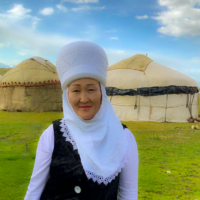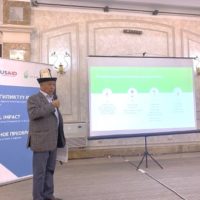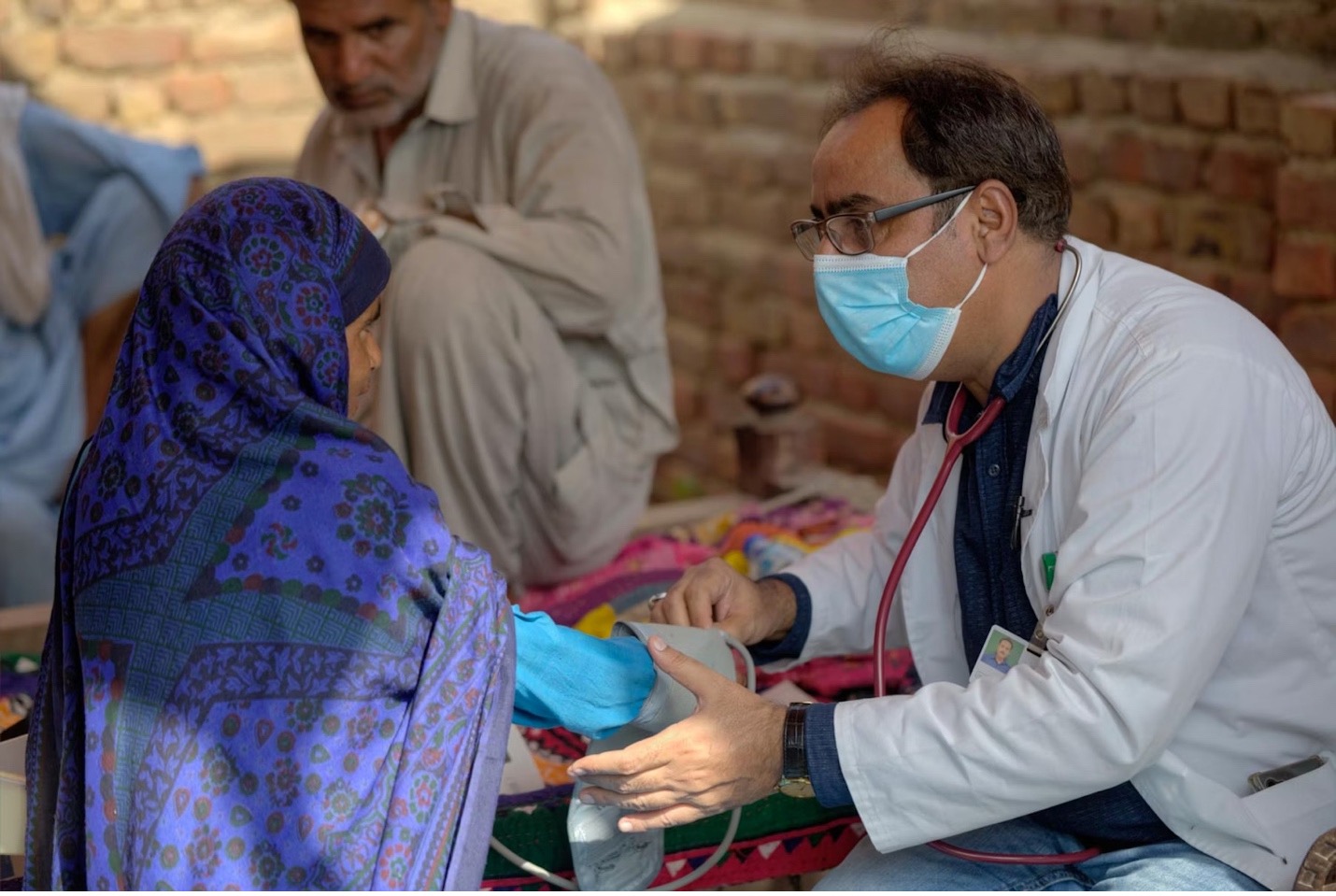
One year on from last year’s devastating floods in Pakistan, communities are still rebuilding their lives. From June to October last year, unprecedented floods hit the country. 33 million people were affected or displaced, and over one million houses were totally or partially damaged, leaving residents forced to seek refuge in temporary housing with limited access to healthcare and sufficient health and hygiene facilities.
Bank Alfalah, one of Pakistan’s leading commercial banks, has donated PKR 200 million (around £550,000 GBP) to the Aga Khan Foundation (AKF) to provide life-affirming health services to those impacted by the floods.
This partnership will address the multifaceted challenges faced by Pakistan’s flood-affected communities, responding to their immediate and long-term needs. Efforts will begin with improving the accessibility and efficiency of health services through existing delivery platforms and mobile outreach services specifically tailored for those affected. Another objective is to enhance access to Water, Sanitation, and Hygiene (WASH) infrastructure for these communities, ensuring better living conditions and hygiene practices.
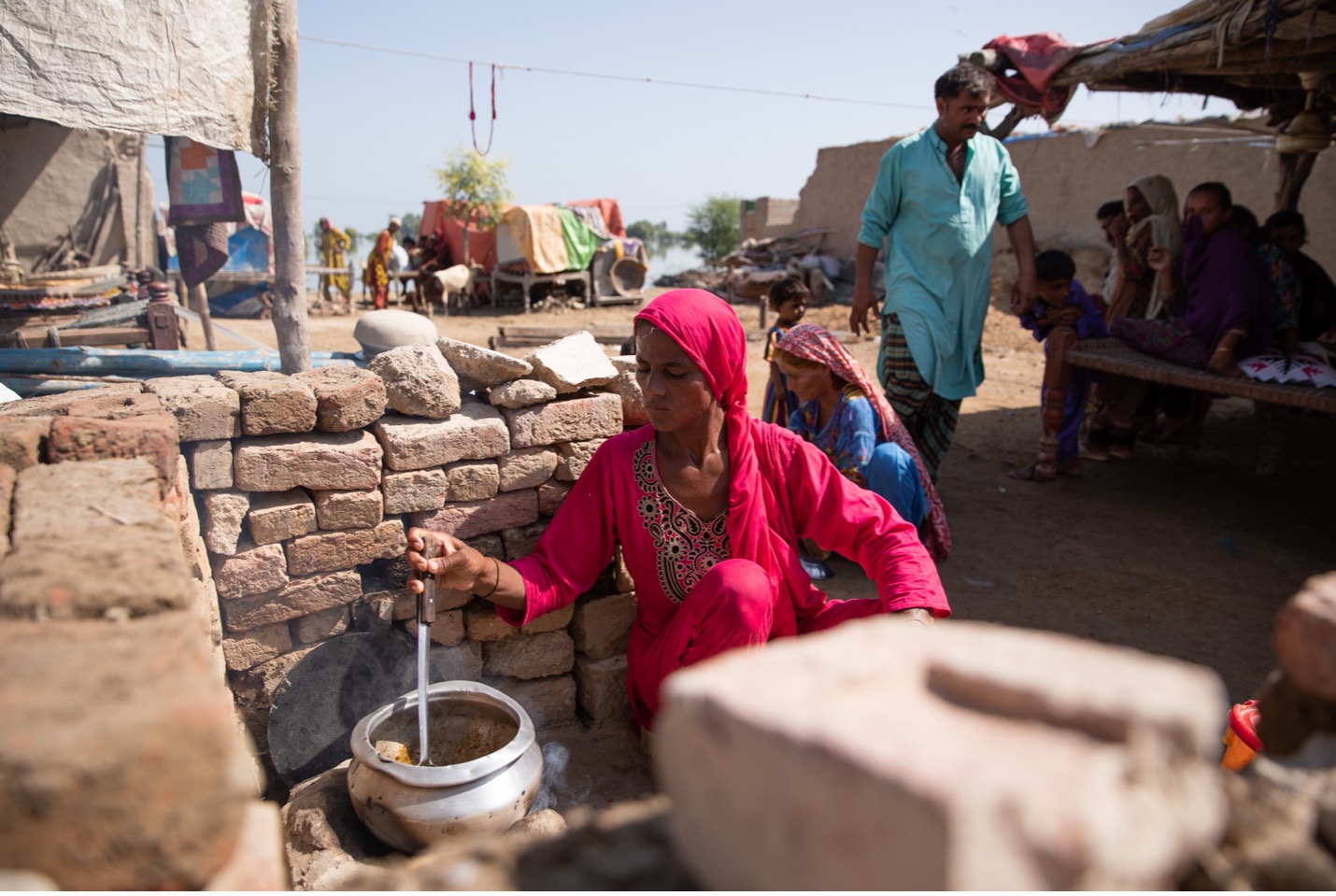
Communities had no option but to cook in makeshift kitchens after their homes were devastated by the floods.

In the midst of the floods, essential medicines were distributed via temporary medical camps like this one.
With Bank Alfalah’s support, AKF aims to empower communities by fostering knowledge and engagement in positive health and hygiene practices and resilience-building efforts. AKF will also support communities to expedite the restoration of agricultural livelihoods in affected areas and revive farming activities to boost economic development. Lastly, the partnership seeks to bolster households’ food security and resilience, equipping them to withstand ongoing challenges and uncertainties.
Atif Bajwa, President and CEO at Bank Alfalah, and Akhtar Iqbal, CEO at AKF Pakistan, signed the agreement at a signing ceremony earlier this week. During the ceremony, Atif Bajwa said, “The partnership with AKF exemplifies the shared commitment to uplift and support vulnerable communities in times of crisis. Together, we can make a lasting impact and create a brighter future for those in need.”
Bank Alfalah’s contribution of PKR 200 million highlights its unwavering dedication to uplift marginalized communities and foster social development. The funds will enable AKF Pakistan and its implementing partners to execute the project efficiently, reaffirming its commitment to building the resilience of flood-affected communities in Pakistan.
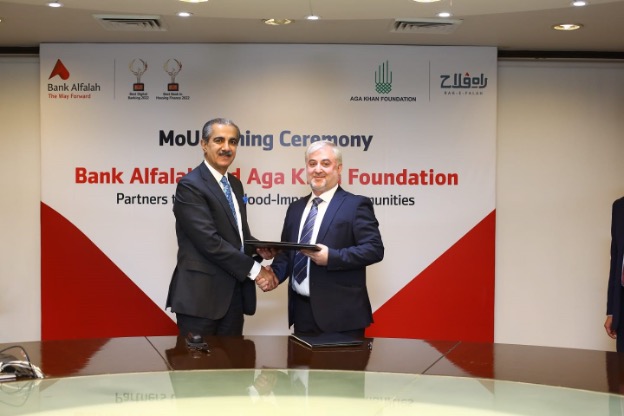
Atif Bajwa, President and CEO at Bank Alfalah (left) and Akhtar Iqbal, CEO at AKF Pakistan (right)
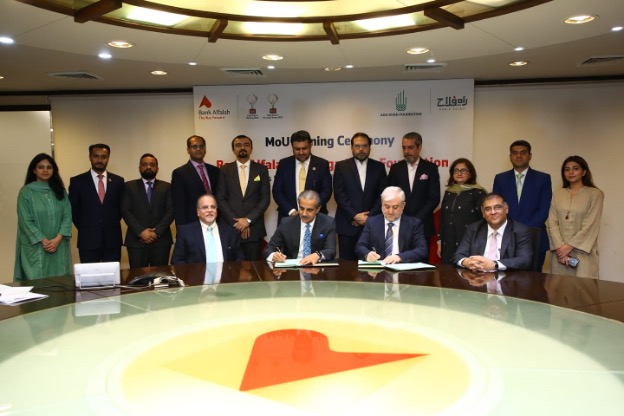
The partnership was formally established during a signing ceremony.
About Bank Alfalah
Bank Alfalah is a leading commercial bank in Pakistan, boasting over 900 branches across 200 cities and an international presence in the UAE, Bangladesh, Bahrain, and Afghanistan. The bank offers a wide range of products and services, including corporate and investment banking, consumer banking, securities brokerage, commercial, small, and medium enterprise, agricultural, Islamic, and asset financing to private sector institutions and governments.
In 2018, Bank Alfalah launched its digital banking group, setting a high standard for the industry to follow with its Alfa app, a revolutionary new application that brings together an unprecedented range of services and features in one convenient platform. In 2022, the bank was awarded the best ‘Digital Bank’ and ‘Housing Finance’ across Pakistan, highlighting its commitment to simplifying and improving the financial capabilities of its customers.

